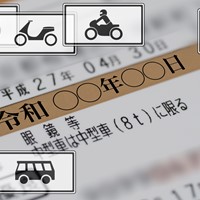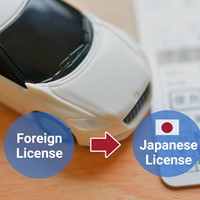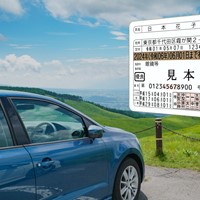Japan Driving Demerit Points: Traffic Violations & Penalties

Whether you have an international permit or a Japanese driver’s license, Japan’s driving rules are the same — and so are the penalties if you break them. If you want to stay on the right side of the law while driving, read on to learn the basics of Japan’s traffic violations and ticketing system, so you won’t be caught off guard or risk losing your license.
Japan’s Demerit Point System
Unlike many other countries, traffic violations in Japan are governed by a demerit point system — the more serious the offense, the more points you receive. These points remain on your record for three years. While having no points can help you during license renewal, accumulating points can lead to suspension, revocation, or even retaking the full driving test and course if you’re not careful.
Suspension Table
This table shows demerit points and suspension periods for traffic violations.
*Tables may require horizontal scrolling on mobile devices.
| Suspended period | 0 times | 1 time | 2 times | 3 times | 4 times or more |
| 30 days | 6–8 points | – | – | – | – |
| 60 days | 9–11 points | 4–5 points | – | – | – |
| 90 days | 12–14 points | 6–7 points | 2 points | – | – |
| 120 days | – | 8–9 points | 3 points | 2 points | – |
| 150 days | – | – | 4 points | 3 points | 2 points |
| 180 days | – | – | – | – | 3 points |
Disqualification Table
This table shows disqualification periods and corresponding demerit points for general traffic offenses.
| Period of Disqualification | 0 times | 1 time | 2 times | 3 times | 4 times or more |
| 1 year (3 yrs) | 15–24 points | 10–19 points | 5–14 points | 4–9 points | 4–9 points |
| 2 years (4 yrs) | 25–34 points | 20–29 points | 15–24 points | 10–19 points | 10–19 points |
| 3 years (5 yrs) | 35–39 points | 30–34 points | 25–29 points | 20–24 points | 20–24 points |
| 4 years (5 yrs) | 40–44 points | 35–39 points | 30–34 points | 25–29 points | 25–29 points |
| 5 years | 45+ points | 40+ points | 35+ points | 30+ points | 30+ points |
Note: If a driver who has had a license revoked commits a general traffic offense during the disqualification period or within 5 years following it, the disqualification period will be extended to the number of years indicated in parentheses.
General Traffic Offenses – Demerit Points
Below is a list of demerit points for common traffic violations in Japan.
| Type of Offense | Points |
| Driving under the influence of alcohol | 35 |
| Driving under the influence of drugs | 35 |
| Driving without a license | 25 |
| Driving with blood alcohol concentration ≥ 0.25% | 25 |
| Driving with blood alcohol concentration < 0.25% | 13 |
| Aggressive / obstructive driving - Causing significant traffic hazard | 35 |
| Aggressive / obstructive driving - Creating risk of traffic hazard | 25 |
| Speeding ≥ 50 km/h over limit | 12 |
| Speeding 30 (highway 40) – 50 km/h over limit | 6 |
| Speeding 25 – 30 (highway 40) km/h over limit | 3 |
| Speeding 20 – 25 km/h over limit | 2 |
| Speeding < 20 km/h over limit | 1 |
| Obstructing pedestrians at crosswalks | 2 |
| Illegal parking – no stopping zones | 3 |
| Illegal parking – no parking zones | 2 |
| Parking / stopping violation – no stopping zones | 2 |
| Parking / stopping violation – no parking zones | 1 |
| Using mobile phone while driving (creating traffic hazard) | 6 |
| Using / holding mobile phone while driving | 3 |
| Failure to stop at designated location | 2 |
| Failure to stop at railroad crossing | 2 |
The better your driving record, the more demerit points you can accumulate without facing severe penalties. For example, a driver with a spotless record who has a BAC under 0.25 (still technically under the influence) wouldn’t have their license revoked for one year, because the general limit is 15 demerit points for drivers with no prior offenses. In this case, the punishment would be a 90-day suspension, allowing the driver to keep their license.
However, a driver with a history of traffic violations may only have a limit of 5 or 6 demerit points before revocation. In the same situation, their license would be taken away immediately.
It’s also important to note that, regardless of the offense, leaving the scene of an accident adds an extra 5 demerit points to your record.
Once your license is revoked, you are prohibited from renewing it for at least one full year, or longer depending on the severity of the violation. After this period, you can start the licensing process from the beginning.
Your accumulated demerit points will be reset under either of the following conditions:
・Upon completing a suspension period
・Upon completing a revocation period
Additionally, certain offenses are considered criminal and may result in fines or imprisonment. These include vehicular manslaughter, driving under the influence, or causing an accident that injures another person or damages property.
Traffic Tickets in Japan: White, Blue, and Red
In Japan, traffic violations are categorized by the seriousness of the offense, which determines the type of ticket issued: white, blue, or red.
⬜️ White Tickets
White tickets are issued for very minor infractions. They do not require payment of a fine, but a demerit point is added to your license. Examples include:
・Not wearing a seatbelt
・Failing to use a child seat
・Not wearing a helmet on a motorcycle
🟦 Blue Tickets
Blue tickets are issued for more minor offenses than red tickets. Common examples include:
・Speeding below the serious violation limits
・Using a mobile phone while driving
・Running a red light
・Violating traffic signs or prohibited passages
・Parking or stopping violations
・Driving without carrying your license
While these are technically criminal offenses, paying the fine (called hanrikin) within the designated period avoids criminal prosecution.
🟥 Red Tickets
Red tickets are issued for serious offenses and carry criminal penalties. Examples include:
・Drunk or intoxicated driving
・Driving without a license
・Failing to provide assistance after an accident
・Excessive speeding (over 40 km/h on highways, over 30 km/h on general roads)
Receiving a red ticket may result in immediate license suspension or revocation, and the driver will face a criminal trial. Conviction can result in fines, imprisonment, or other legal consequences.
🟨 Yellow Stickers for Parking Violations

Yellow stickers are issued for illegal parking, not as a traffic ticket. When a yellow sticker is attached to your vehicle, you are required to visit the local police station and pay the corresponding fine. If payment is not possible, the vehicle owner may receive a notice to pay the fine. This system ensures that parking violations are properly addressed without immediately resorting to criminal procedures.
How to Pay a Fine
If you receive a blue ticket, you must pay the fine within seven days at a designated bank or post office. Payments are accepted in cash only, and installment plans are not allowed. Failing to pay on time may result in higher fines or even license suspension.
International Driving Permit Holders
Holders of an international driving permit do not accumulate demerit points in Japan, but they can still receive tickets, fines, or jail time. Japanese traffic law applies, meaning the license can be suspended or revoked under local regulations, but this does not affect the permit holder’s license in their home country.
Traffic Offences in Rental Cars
If you receive a fine while driving a rental car, pay it before returning the vehicle. Keep the receipt and present it to the rental agency. Failure to pay may result in additional fees from the rental company, sometimes up to double the original fine.
Read More: How to Rent a Car in Japan
Stay Safe on the Road in Japan
Driving in Japan can be an adventure, but if you’re worried about navigating the rules, public transportation is always a safe and convenient option. If you’re excited to get behind the wheel, check out our detailed guides on what you need to know before driving in Japan. Follow the rules, stay safe, and enjoy everything Japan has to offer!




















